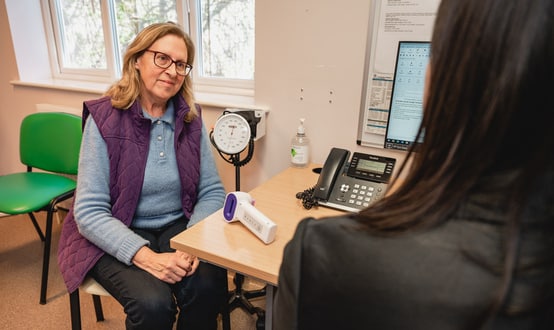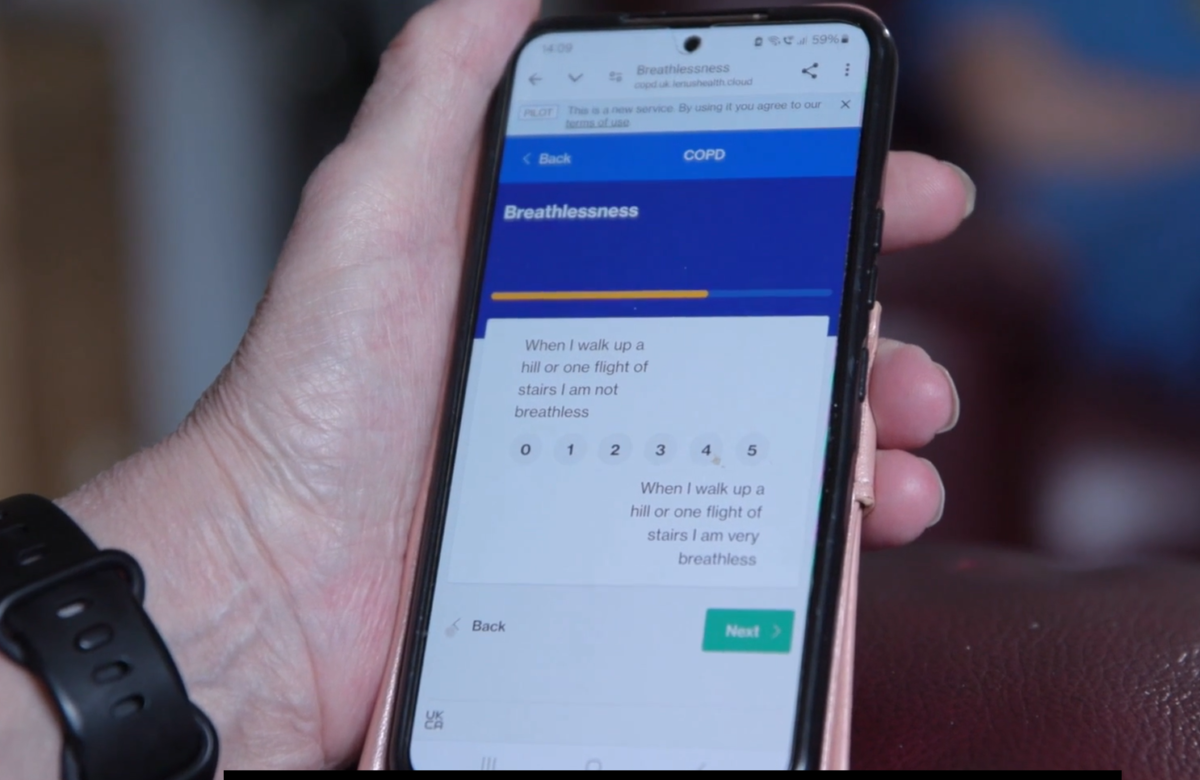Oxford GPs to trial new N-Tidal AI technology for COPD
- 24 August 2023

GPs, practice nurses and pharmacists in Oxford are to be the first to pilot a new AI-driven assessment technology that can identify patients with chronic obstructive pulmonary disease (COPD), cutting the waiting lists for conventional COPD testing.
The traditional test used to spot COPD is spirometry, however, the test is currently in short supply across the UK. Healthcare company TidalSense has launched new technology using artificial intelligence (AI) for assessing COPD, which can result in faster, more accurate diagnosis.
The N-Tidal device is a high-resolution carbon dioxide sensor. This is combined with an AI platform to measure changes in lung function that could point to the condition. The device can quickly diagnose COPD – from breath to result takes less than five minutes.
It will be trialled by healthcare professionals in Oxford on up to 600 patients with suspected or confirmed COPD, over a 12-week period. Where possible the results from the N-Tidal device will be compared to existing spirometry tests.
Dr Helen Ashdown, GP clinical lecturer, Nuffield Dept Primary Care Health Sciences, University of Oxford, said: “This potentially ground-breaking medical device may be able to provide clinicians with a faster and more accurate assessment of patients’ lung function.
“Early intervention is crucial for managing COPD effectively and, with the N-Tidal device, we have the potential to transform the way we diagnose and manage this chronic respiratory condition, leading to improved patient outcomes and better care.”
The trial is part of a collaboration with Healthier Oxford City Network, a primary care network with four practices.
Clinical studies have already demonstrated that the technology can deliver over 91% accuracy in diagnosing severe COPD from a single breath recording. Working in collaboration with researchers – including academics from the Nuffield Department of Primary Care Health Sciences at the University of Oxford – the technology is set to replace spirometry in some NHS diagnostic clinical pathways and move towards an automated diagnostic test.
Dr Ameera Patel, CEO of TidalSense, said: “Clinical pathways continue to rely on spirometry, a test dating back to the 1800s, which is uncomfortable for the patient and often produces ambiguous results, meaning high misdiagnosis rates. Even worse, many patients are forced to wait months, if not years, for a diagnosis because delivery of spirometry in primary care is fraught with operational and logistical challenges.
“We desperately need to arm primary care doctors with accurate, easy-to-perform tests that enable the early and accurate diagnosis of patients, at the point at which they present with symptoms. In doing so, we can reduce healthcare inefficiencies and costs, reduce delays to diagnosis, reduce hospitalisation costs, and improve the quality of life for patients.”




